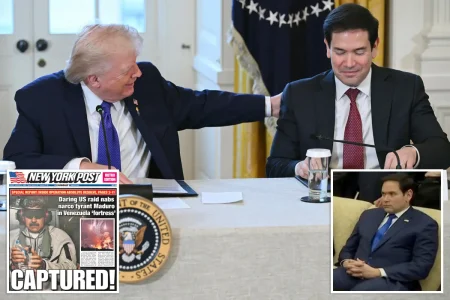Lawrence Summers: A Career in the Balance
In the corridors of power, few figures have demonstrated the resilience of Lawrence Summers. The former Harvard president, Treasury Secretary, and economic advisor to presidents has weathered numerous controversies throughout his storied career, bouncing back from setbacks that might have permanently sidelined others. His sharp intellect and blunt communication style have made him both an invaluable policy advisor and a lightning rod for criticism. For decades, Summers has maintained his position as one of America’s most influential economic voices, regularly appearing in media to share his perspectives on everything from inflation to international trade. His ability to remain relevant across multiple administrations and through various professional setbacks has been remarkable, speaking to both his intellectual capabilities and his political adaptability.
However, Summers’ carefully reconstructed reputation now faces perhaps its most serious challenge. Recently revealed emails detailing his relationship with convicted sex offender Jeffrey Epstein have raised troubling questions about his judgment and associations. These communications show a pattern of engagement that extended beyond casual acquaintance, including multiple meetings and discussions that continued even after Epstein’s criminal history became public knowledge. The revelations have been particularly damaging because they contradict previous statements Summers made minimizing his connections to Epstein. As these emails circulate through academic, political, and media circles, they’re prompting a reevaluation of Summers’ character and decision-making at a fundamental level, threatening the credibility he has worked so diligently to maintain through previous controversies.
Throughout his career, Summers has demonstrated an almost unparalleled ability to rehabilitate his public image following setbacks. After controversial comments about women in science contributed to his departure from Harvard’s presidency in 2006, he gradually rebuilt his standing through government service and commentary. When criticism of his financial deregulation policies during the Clinton administration surfaced following the 2008 economic crisis, he adjusted his positions and maintained his relevance as an economic thinker. This pattern of controversy, adjustment, and comeback has defined his professional life. Yet the Epstein revelations present a different kind of challenge – one that touches on basic questions of character rather than policy disagreements or insensitive statements, and one that connects him to a scandal that has already ended numerous high-profile careers.
The stakes for Summers extend beyond his personal reputation. As someone who has positioned himself as a voice of economic reason and moral clarity, these revelations undermine the very foundation of his public persona. His commentary has been valuable precisely because it comes from someone perceived to possess both technical expertise and sound judgment. The Epstein associations call the latter quality into serious question. Additionally, institutions and media outlets that have provided Summers with platforms must now consider whether continuing to do so aligns with their own values and credibility. The Washington Post, where Summers has been a regular contributor, faces particular scrutiny about whether to maintain this relationship given these revelations. Similarly, academic institutions and policy groups that have welcomed his participation must weigh the costs of continued association.
What makes this moment particularly challenging for Summers is the changing nature of public accountability. In previous eras, powerful figures could more easily overcome scandals through strategic silence or the passage of time. Today’s interconnected media environment, combined with evolving standards around professional conduct, creates a more sustained form of scrutiny. The Epstein case specifically has become a touchstone for discussions about power, privilege, and accountability in American public life. While Summers has weathered controversies before, the cultural context has shifted significantly, with less tolerance for elite networks that appear to protect their own regardless of misconduct. His connection to Epstein places him within a broader conversation about institutional failure and the responsibility of influential figures to uphold ethical standards.
As Summers confronts this latest and perhaps most significant challenge to his public standing, the outcome remains uncertain. His intellectual contributions and policy expertise remain valuable, but the revelations about his judgment in personal associations create legitimate concerns about his continued role in public discourse. For institutions considering their relationship with Summers, the calculation involves balancing his undeniable expertise against the potential damage to their own credibility. For Summers himself, navigating this controversy will require more than his typical approach of waiting for attention to shift elsewhere. It will demand genuine accountability and recognition that even brilliant minds must be guided by sound ethical judgment. The resolution of this situation will speak not only to Summers’ future but to broader questions about accountability for elite figures in American society.







